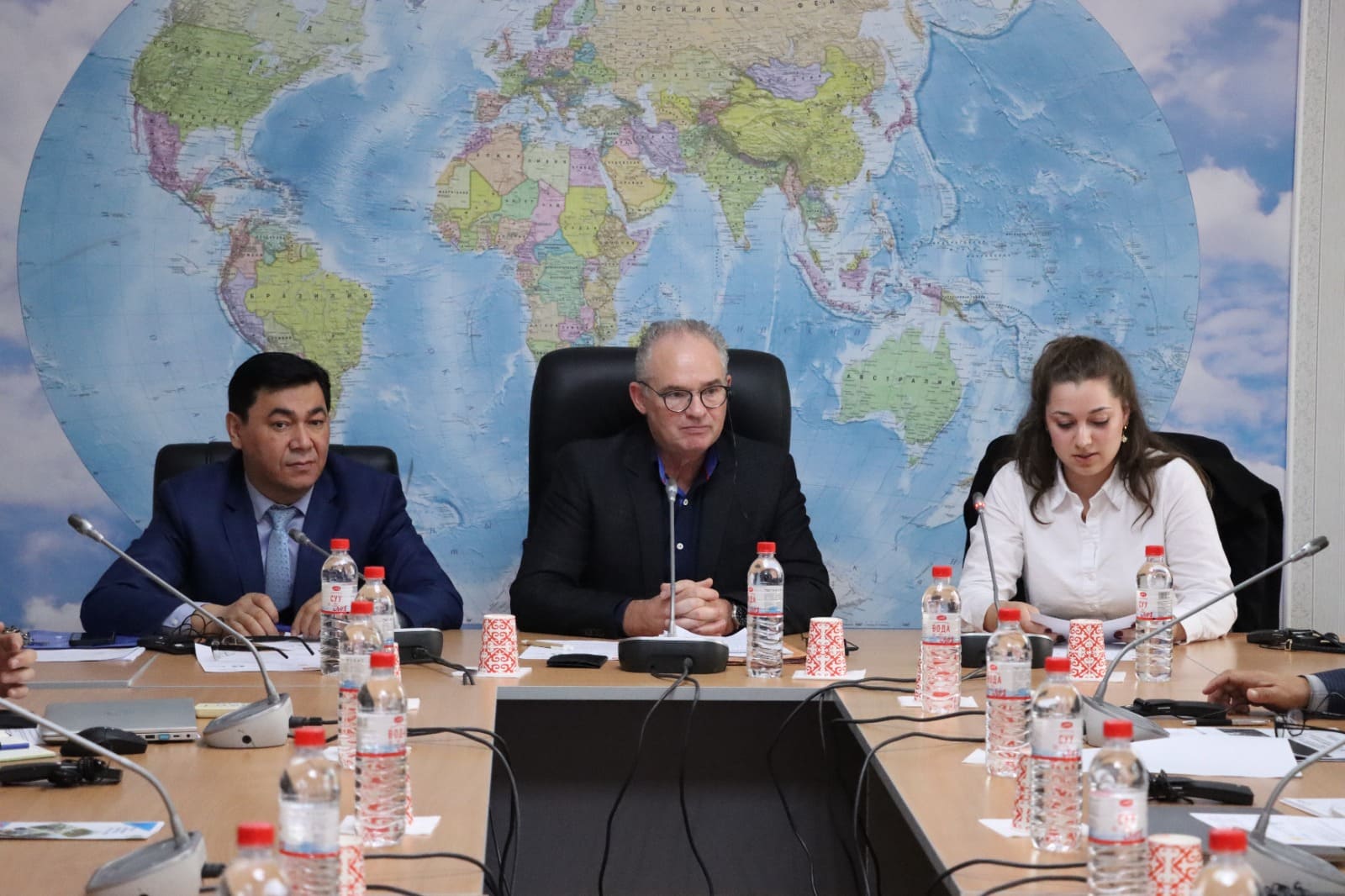On 14 October 2024, the third ALMA-KiKa project meeting was held at the K. I. Skryabin Kyrgyz National Agrarian University on the cooperation project funded by the German Federal Environmental Fund (DBU) ‘ALMA Sustainable Regional Management and Value Creation for the Conservation of Old Varieties of Apple Trees in Kazakhstan and Kyrgyzstan’.
The theme of this meeting was: Conservation through utilisation: which wild fruit trees can be used in holistic value chains to protect/preserve stocks?
The workshop was attended by Prof. Dr Matthias Kramer, ALMA-KiKa Project Manager, Ms. Nicole Tschap, Attaché of the Embassy of the Federal Republic of Germany, Kenzhebai Umetov, Director of the Kyrgyz-German Institute at KNAU, Almaz Imanaliev, Project Manager, Aitkul Burkhanov, Director General of the Kyrgyz Association of Forest and Land Users (KAFLAU), Joibolotov Syrgabek, Director of Jalal-Abad Rural Advisory Service (PF RAS JA), Director of Julius Kühn Institute (JKI) Prof. Dr Henryk Flachowski (online), Jyrgal Kozhomberdiev, Ala-Too Camp (NGO for Sustainable Mountain Development) and members of the working group at KNAU.
After Prof Kramer’s introductory presentation, Ms. Tschap, Attaché of the Embassy of Germany, took the floor and stressed the importance of this project for both countries of the participants. The presentation was also made by Mr Aitkul Burkhanov, Director General of the Kyrgyz Association of Forest and Land Users (KAFLAU) on ‘Recommendations for the implementation of value chains of “wild products” taking into account the appropriate conservation status, especially for Nedzvetsky and Sivers apple trees’, as well as Mr. Syrgabek Zhaibolotov, Director of the Rural Advisory Service of Jalal-Abad (PFRASJA) with the report ‘Current use of wild fruits of trees in the region of Kara-Alma-Urumbash project – quantity of wild fruits, prices, technologies of use and logistics, demand and supply’.
The meeting discussed which wild fruits, which do not have a restrictive conservation status but are nevertheless endangered, can be used to protect biodiversity and maintain ecosystem services in regional value chains.
At the end of the meeting, project leader Prof Kramer thanked all participants for their hard work and informed them of the successful completion of the first phase of the project and the start of the second phase of the project.
